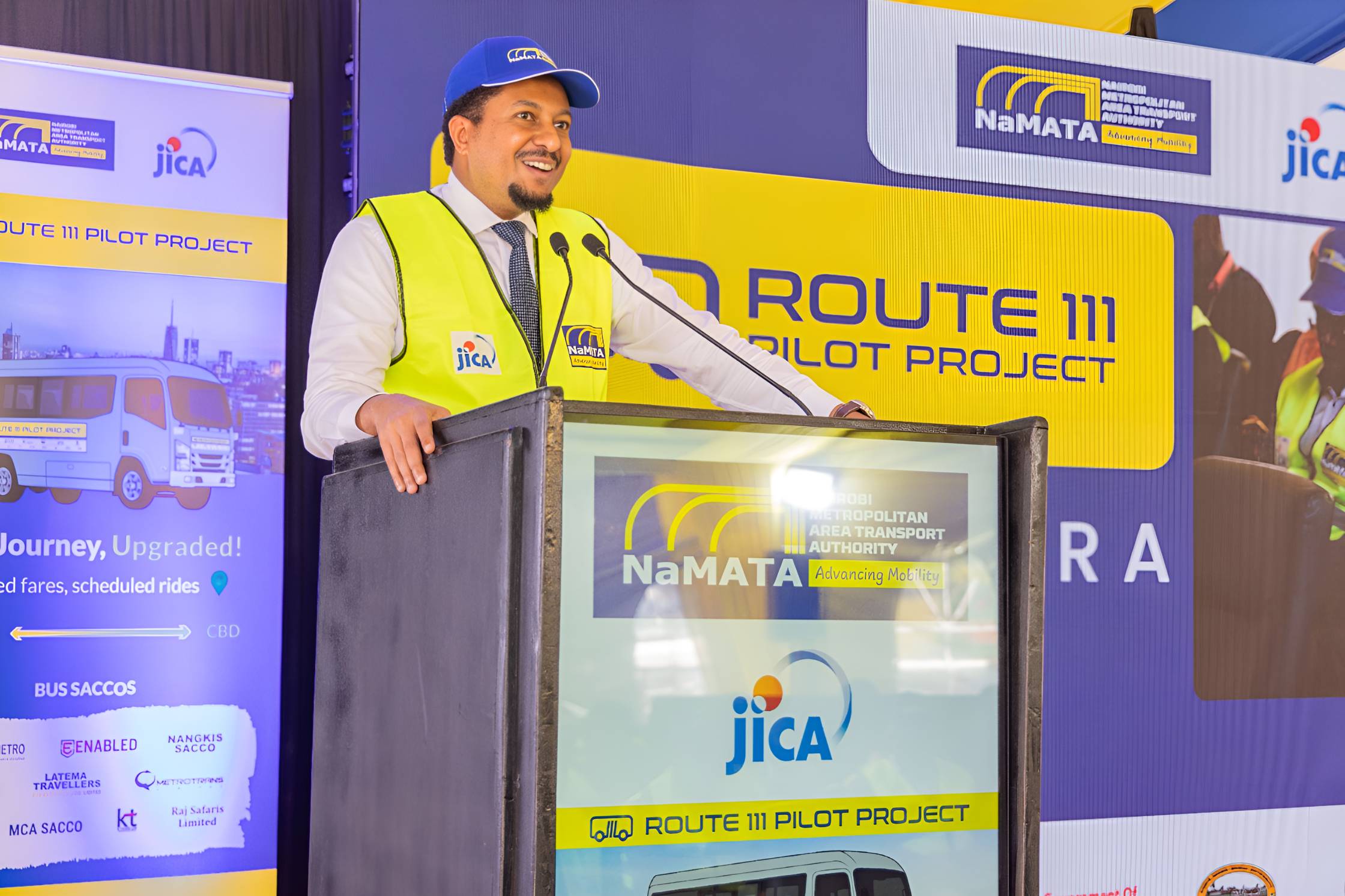Nairobi commuters are now experiencing a groundbreaking shift in urban transportation with the launch of the Route 111 pilot project.
This initiative marks the first phase of Nairobi's Bus Rapid Transit (BRT) trials, a project that promises to bring a major transformation to how people travel across the city.
The new system, which aligns with successful transportation models in major European cities, aims to address the persistent challenges of overcrowding, unpredictability, and inefficiency in Nairobi’s current public transport system.
The Route 111 pilot project introduces two key innovations: fixed fares and scheduled buses.
Unlike the traditional matatu services, which often leave only when they are full, the buses on Route 111 will operate according to a fixed timetable.
This means buses will depart at set times, ensuring that commuters do not have to wait for the vehicles to fill up before their journey begins.
With this new system in place, long waiting times are expected to be significantly reduced, providing passengers with a more predictable and stress-free travel experience.
The project’s main goal is to eliminate the unpredictability that has long plagued Nairobi’s public transport system, where commuters have faced delays due to overcrowding and unreliable departure times.
"Route 111 Pilot Project demonstrates that we can collaborate and work together as one people to provide services to our people and confront the challenges faced by commuters and travellers daily," said Transport PS Mohamed Daghar.
His remarks underscore the importance of collaboration between the government, industry players, and transport stakeholders to make this initiative a success.
This pilot project is part of Nairobi’s broader strategy to modernize and upgrade its public transportation system.
It comes just a few months after Nairobi's Bus Rapid Transit project secured €320 million (Sh43.4 billion) in funding from international partners, including the European Investment Bank (EIB), the French Development Agency (AFD), and the European Union (EU).
The funding will be used to develop the Clean Core Bus Rapid Transit (BRT) Line 3, a clean and sustainable transportation system that aims to reduce the city’s traffic congestion and improve air quality.
The Nairobi Metropolitan Area Transport Authority (NMATA) believes that the introduction of Route 111 is a critical first step in improving the daily commute for Nairobi residents.
This pilot phase will feature a 12-kilometre route from Dandora to Kenyatta National Hospital along Juja Road, with plans for future extensions to connect even more areas of the city.
As part of the ongoing expansion, the second phase of the project will extend the route to include Tala, Dandora, and Ngong, making the BRT system more accessible to a broader population.
The Route 111 pilot project also serves as a foundation for the development of additional BRT lines in Nairobi. The project aims to reduce the reliance on matatus, which have long been criticized for their chaotic nature and lack of regulation.
With the introduction of scheduled buses, commuters will be able to enjoy greater reliability, affordability, and consistency in their daily travel.
If successful, the pilot will pave the way for the full implementation of Nairobi's Bus Rapid Transit system, transforming the city's transport landscape and offering a sustainable alternative to the current matatu-dominated network.
